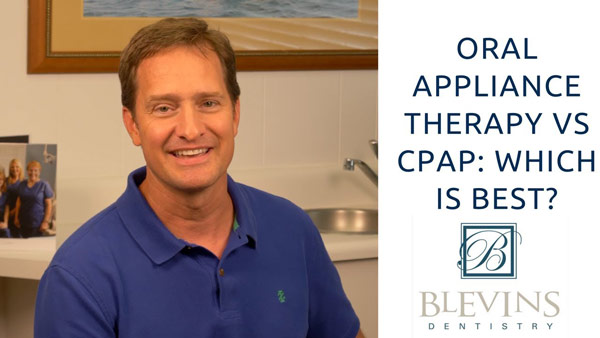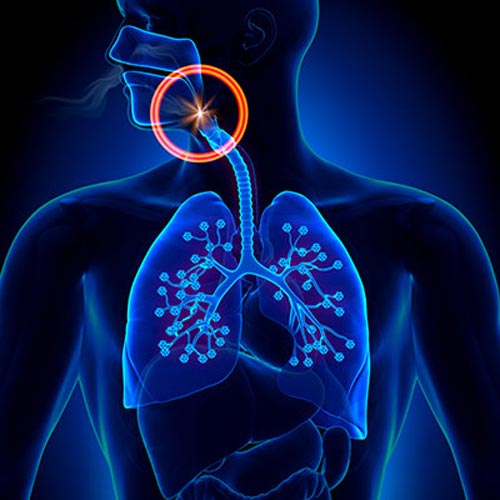Didn’t Like CPAP? Have You Tried Oral Appliance Therapy for Sleep Apnea?
Mullins SC Dentist Office
Over the years, countless people have suffered from Sleep Apnea. The most common type of sleep apnea is (OSA), which is the result of a blocked airway. The blocked airway is usually the result of soft tissue in the back of the throat collapsing during sleep.
As you can imagine, this blocked airway causes a person’s breathing to be interrupted during their sleep. Although the interruptions are short, they can happen hundreds of times in one night, causing the brain and body to receive insufficient oxygen. This leads to an extensive list of symptoms, problems, and even serious health concerns.
These include:
- Loud snoring
- Waking up gasping for air
- Poor nights of sleep and fatigue
- Poor performance in everyday tasks like driving, working, or caring for children
- Headaches
- High blood pressure
- Stroke
- Diabetes
- Depression
- Heart failure, irregular heartbeats, and heart attacks
The longer you deal with sleep apnea, the worse the symptoms become. For this reason, it’s important to treat sleep apnea. In 1980, the CPAP was invented by Collin Sullivan and provided an effective treatment for sleep apnea.
Treating sleep apnea with CPAP
CPAP stands for . CPAP therapy requires you to wear a mask that is connected to a machine while you sleep. The machine increases the air pressure in your throat so that it doesn’t collapse when you sleep.
CPAP has proven to be effective at preventing sleep apnea, helping provide people with better sleep, less drowsiness, healthier hearts, and better blood pressure. The only problem is, most people don’t like using their CPAP. In fact, indicates that only 50 percent of CPAP users actually use it every night.
There are several reasons for this:
- CPAP is big and bulky, and almost impossible to travel with
- The CPAP machine makes noise all night
- It requires electricity to work (again making it difficult to travel with)
- Wearing the CPAP can be very uncomfortable, especially when first being used
- People cannot speak or drink once they begin wearing the CPAP
Despite the health benefits the CPAP provides, we find that many patients do not use it consistently or correctly. However, sleep apnea can cause so many problems and should never be ignored.
Fortunately, there is now an alternative to CPAP for those looking to treat their sleep apnea: Oral Appliance therapy.
Oral Appliance Therapy
Oral Appliance Therapy (OAT) is recommended by the as the first line of defense against sleep apnea. Because it is newer, it isn’t as well known as the CPAP. However, time and research have demonstrated that Oral Appliance Therapy is an effective treatment option for snoring and obstructive sleep apnea.
With Oral Appliance Therapy, patients are provided with an appliance that fits like a mouth guard or orthodontic retainer and is worn while you sleep. This appliance pushes the jaw forward to help maintain an open upper airway throughout the night.
Oral Appliance Therapy provides the following benefits over CPAP:
- It is small and easy to transport – it can even fit in your pocket
- It is easy to use consistently – just slip the appliance into your mouth
- It does not require electricity to work
- It is much more comfortable
- You can speak or drink while wearing it
As you can see, Oral Appliance Therapy provides a far more comfortable and convenient solution than CPAP. For this reason, we strongly recommend patients try Oral Appliance Therapy for their sleep apnea.
Ready to try something new?
If you don’t like your CPAP, then you should speak to your dentist about Oral Appliance Therapy. If you’re in the Mullins, South Carolina area, then we recommend you schedule an appointment at Blevins Dentistry. Dr. Blevins is one of South Carolina’s most accomplished dentists and has significant experience helping patients with their sleep apnea.
We will conduct an examination of your mouth and jaw to understand your needs and determine what type of oral appliance you need. We’ll make sure it is comfortable and will keep your airway open, providing you with a great alternative to your CPAP.
If you’d like to improve your sleep apnea, then contact us today to schedule an appointment. A better night’s sleep doesn’t require a big machine, try an oral appliance!
Sources:
• Sleep apnea
• CPAP vs Oral Device Therapy – Which is Better?
• CPAP therapy for Obstructive Sleep Apnea
• Sleep apnea treatment options
• Oral Appliance Therapy
Schedule Your Appointment Now
We Can’t Wait to Help You Create Your Dream Smile!

